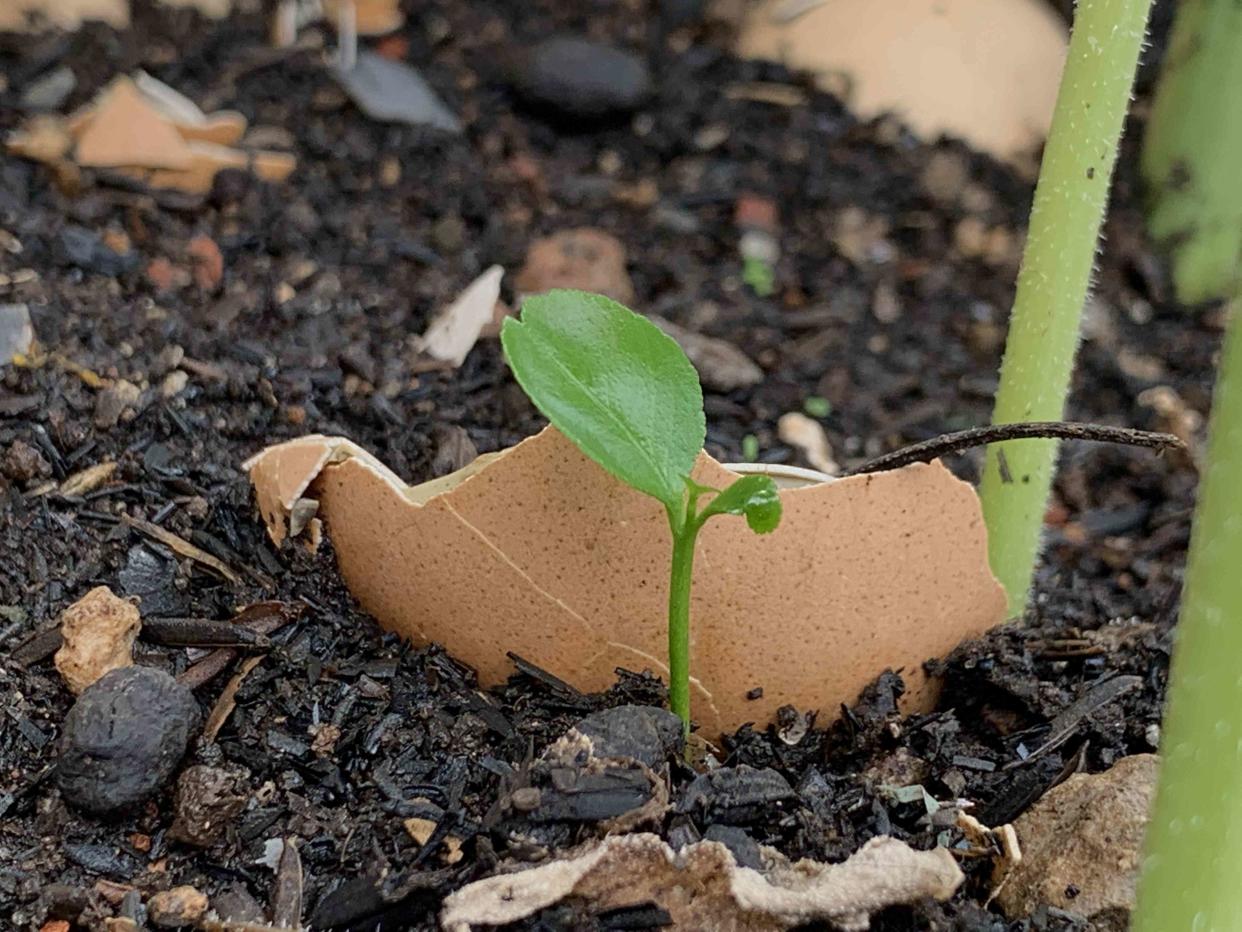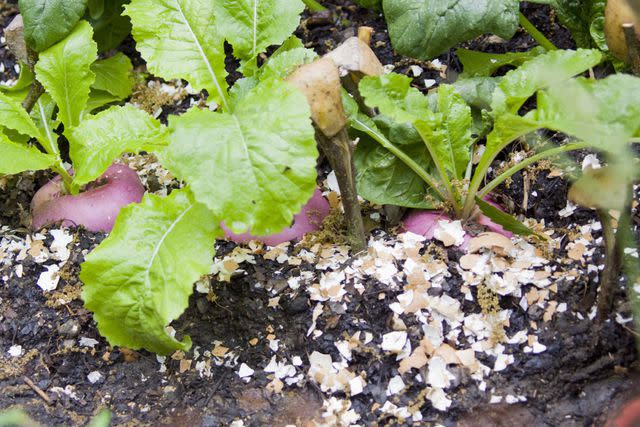5 Ways Leftover Eggshells Can Bring Big Benefits to Your Garden

Fajrul Islam / Getty Images
Before you toss your eggshells, it’s time to give them a second shot. Eggshells used as fertilizer for your garden can benefit the soil your plants use to gain essential nutrients, aiding rapid growth and keeping soil acidity in check.
Here’s how and why you should put your eggshells to use in the garden the next time you make an omelet instead of simply tossing them in the trash.
Why Use Eggshells to Fertilize the Garden?
Eggshells can act as a natural fertilizer for your plants. The nutrients found in the shells can reduce acidity in soil, aid rapid growers that can quickly suffer from calcium-deficient soil, and may even act as a deterrent for some pests.
In order to reduce waste, it’s always a good idea to look at your spent scraps and try to find new ways to put these items to good use, rather than just tossing them in the trash. The benefits can range from less kitchen waste to a garden full of thriving plants.
Want more gardening tips? Sign up for our free gardening newsletter for our best-growing tips, troubleshooting hacks, and more!
5 Benefits of Eggshell Fertilizer

Reduces waste. Rather than adding your eggshells to the trash, creating an eggshell solution or eggshell dust for fertilizer can give a second life to what would otherwise be yet another addition to your local landfill.
Powers up plants. Eggshells can strengthen plant roots and aid in healthy growth, particularly of rapidly growing varieties.
Increases calcium. The calcium carbonate in eggshells can help reduce the potential for blossom end rot in certain plants, an issue that can arise due to insufficient calcium levels.
Reduces acidity in soil. The eggshells’ calcium carbonate also naturally reduces the acidity of your soil, which can greatly benefit plants that prefer lower pH levels making the soil more alkaline so they can better absorb nutrients.
Deters pests. Eggshells may help deter pests like slugs and snails as their soft bodies are susceptible to the sharp edges of the shells. On the other hand, eggshells can help worms thrive by aiding in their digestive process.
How to Make and Use Eggshell Fertilizer
Start by washing the eggshells. Once dry, grind them into a powder using a food processor or rolling pin. You’ll want to wear a mask while grinding the shells to avoid breathing in the eggshell powder.
Apply the powder around your plants and stir it into the soil for quicker absorption.
Alternatively, you can create an eggshell solution by adding one- to two dozen clean eggshells to a gallon of boiling water. After letting the solution sit overnight, strain out the eggshells.
Pour a couple of cups of water over desired plants twice a month.
How Do Eggshells Work in the Garden?
For fast-growing plants that need a lot of calcium, eggshells can help provide the nutrients they need to keep up with their rapid growth. In addition, eggshells can be used for your composting needs if you keep a worm bin. The ground up eggshells can help the soil-dwellers grind up food and aid in their digestion.
As far as eggshells as a deterrent for pests, it’s said that they can act as a barrier for slugs and other soft-bodied insects. Deer are also inclined to keep away from gardens that utilize eggshells as fertilizer as they find their smell off-putting.
Frequently Asked Questions
Which plants like eggshells?
Plants that grow quickly will benefit from the calcium carbonate in egg shell fertilizer as they can quickly deplete soil of calcium. You’ll also want to ensure you only use eggshells with plants that prefer less acidic soil. Tomatoes, eggplants, and peppers as well as ivy, hydrangeas, roses, and ferns can all benefit from soil amended with an eggshell fertilizer.
How do you use eggshells on plants?
The most effective way to use eggshells on plants is to dry them and grind them up into a powder before sprinkling them around the base of your plants. This speeds up the amount of time it takes for the eggshells to effectively add nutrients to the soil surrounding your plants.
Do eggshells keep bugs away from plants?
The sharp edges of egg shells are said to act as a barrier to keep out soft-bodied creatures like slugs and snails as the shells can cause small cuts to their bodies which cause them to dry out. That being said, there’s some speculation around whether or not this method is effective.
Read the original article on The Spruce.

